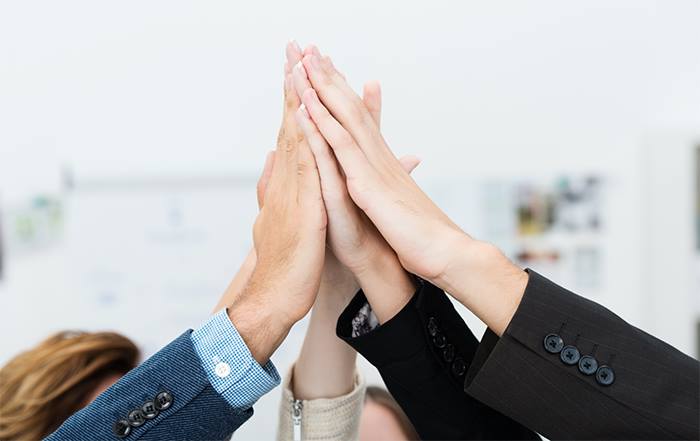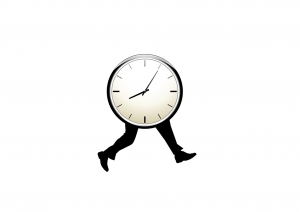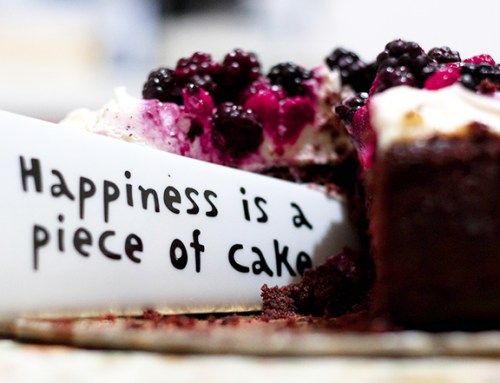Last Thursday it was all over my Facebook timeline. No matter when and where I looked. The plea of Jan Terlouw was – and still is – everywhere. Surprisingly large numbers of my twenty to thirty year old peers shared the plea with praising words on Facebook. I had expected an older generation to identify with the words of Jan Terlouw most.
A visibly emotional Jan Terlouw, former Dutch politician and writer, makes a passionate plea in the Dutch tv show De Wereld Draait Door (The World Keeps on Turning). In his speech, he tells us his fears for climate change and the decreasing trust within society. Especially the second topic catches my attention. As a sociologist, I am curious about norms, values and beliefs within society. These bring people together. In politics, at work and in private.
Jan starts his speech with a beautiful metaphor: strings hanging from mailboxes, to allow doors to be openen from the outside; a sign of trust. Trust in one and other is gone, he says. Trust in politicians is gone. We have to restore trust for the public interest, the interest of the future: youth!
It would be awesome if we could go back to a society which, highly engaged, Jan describes from the heart. A society where trust is big enough to hang strings from the mailboxes again. That is why it makes me happier that so many of our youth value this plea so much! Would this be the moment where we can start working together on increasing trust within society?
Would this be the moment where we can start working together on increasing trust within society?
Whether we hang strings from mailboxes again, or in any other form, a society needs to be built on trust in order to be more successful. The European Value Study (2008), an extensive research project supported by the dutch Tilburg University and the German University of Potsdam explores Europeans’ attitudes about religion, politics, work, society, family and Europe, shows that a higher extent of trust within society exist in the more wealthy countries. And, as described by Stephen M.R. Covey (son of management guru Stephen R. Covey) in his book, The Speed of Trust: trust is an important factor in lowering costs and raising efficiency. Having, giving and receiving trust is, according to Covey, a 21st Century Skill. A skill which you definitely need in the highly changeable world we live in. According to Covey trust is a competence which can be acquired and developed. When you develop and improve this skill, you allow yourself to achieve great accomplishments.
Also, Jan Terlouw concludes in his plea that the lack of trust is inefficient and brings more costs. ‘What used to be signed and closed with a handshake, nowadays requires 5 contracts. And building a bridge requires more lawyers than engineers.’, Jan stresses. Think about the extra costs this will bring. Not only will it raise expenses when both parties hardly trust each other, if at all. The speed to realize tasks and projects drastically decreases. And again that costs more money. Everything takes longer and is more expensive. On the positive side, Covey states that engagement, collaboration, decision making and satisfaction increase when trust increases.
Thanks for the insights, Stephen and Jan! If trust has such a big impact on cost and speed, shouldn’t we start working on that together as soon as possible?!
If trust has such a big impact on cost and speed, shouldn’t we start working on that together as soon as possible?!
Trustworthiness before trust
Gaining trust doesn’t come naturally. You will need conscious effort to have, give and get trust. In your relationship with others it is important to show consistent behavior. Because your behavior is what others judge you on. Others don’t see your intention, they see your behavior.
It is important to show someone else that you really are trustworthy. Only then you can gain their trust. In her TED talk, baroness and philosopher Onora O’neill describes how this works: you decide whether you feel someone is trustworthy based on three points:
- Is one competent?
- Is one honest?
- Is one reliable?
Are all these points present? Then there is a sufficient base for a trust based relationship.
Together we increase trust
How much trust do you have in your fellow people? Are you someone who deserves trust from others? Do you trust yourself? Jan Terlouw hits where it hurts: lack of trust slows us down. Counting on each other is a great good, both in society and in organisations. Having, giving and receiving trust brings out a lot of positive things. Do you want others to trust you? Trustworthiness starts with being credible. This begins with your own mindset. Which values and beliefs do you have? Do you have the courage to act according to your values and beliefs at all times? Even if standing by your values and beliefs is the hardest thing to do?
It is important that you genuinely care about people. Show that you are honestly seeking what is good for others. Show your intent in your actions. Behavior is important because it is what people see and judge. Also, deliver what you promise. If you deliver what is expected, your credibility will grow.
3 tips to create more trust
- Be honest
Tell your colleagues what’s going on. Use simple, to the point language. Share the things that are on your mind and involve your colleagues in your plans. Think about it. How would you feel when it seems that your supervisor has got a hidden agenda? Would you trust that person more, or less? - Show respect
Show that you care about your people. Respect every person’s and every function’s dignity. Our actions should show we care, because people judge us on our behavior and not on our intent. If you mean what you say and do, people around you will notice that you have sincere respect for others. It’s all in the details. Hold the door for someone. Say ‘Hi!’ to the cleaning lady when you walk into your office every morning. Let someone cut the queue, even though you were already standing there. Offer your seat to that old woman on the train. All these small things will eventually have a big impact. You will soon notice the big smiles you get in return. - Do as you promise
When you make a commitment, big or small, you build hope. When you keep a commitment, you build trust. Be careful when making commitments. Be clear in the commitments that you make and live up to what you promise. If you act on what you said you were going to do, your colleagues will start trusting you more and more. They will see that you really are a trustworthy person.

 Trust based relationships
Trust based relationships





Leave A Comment